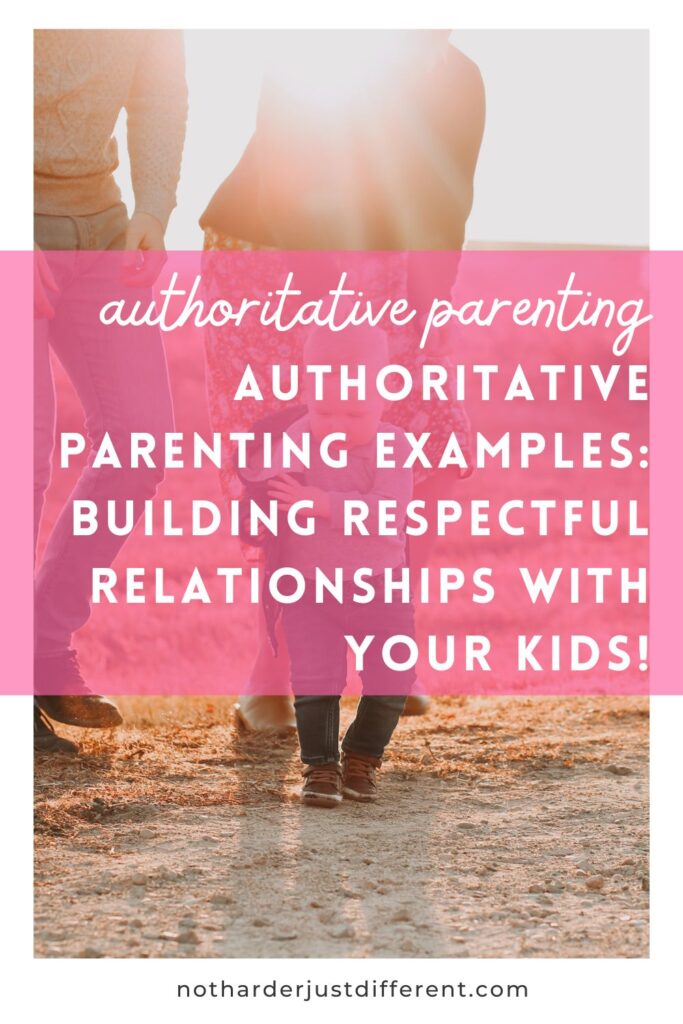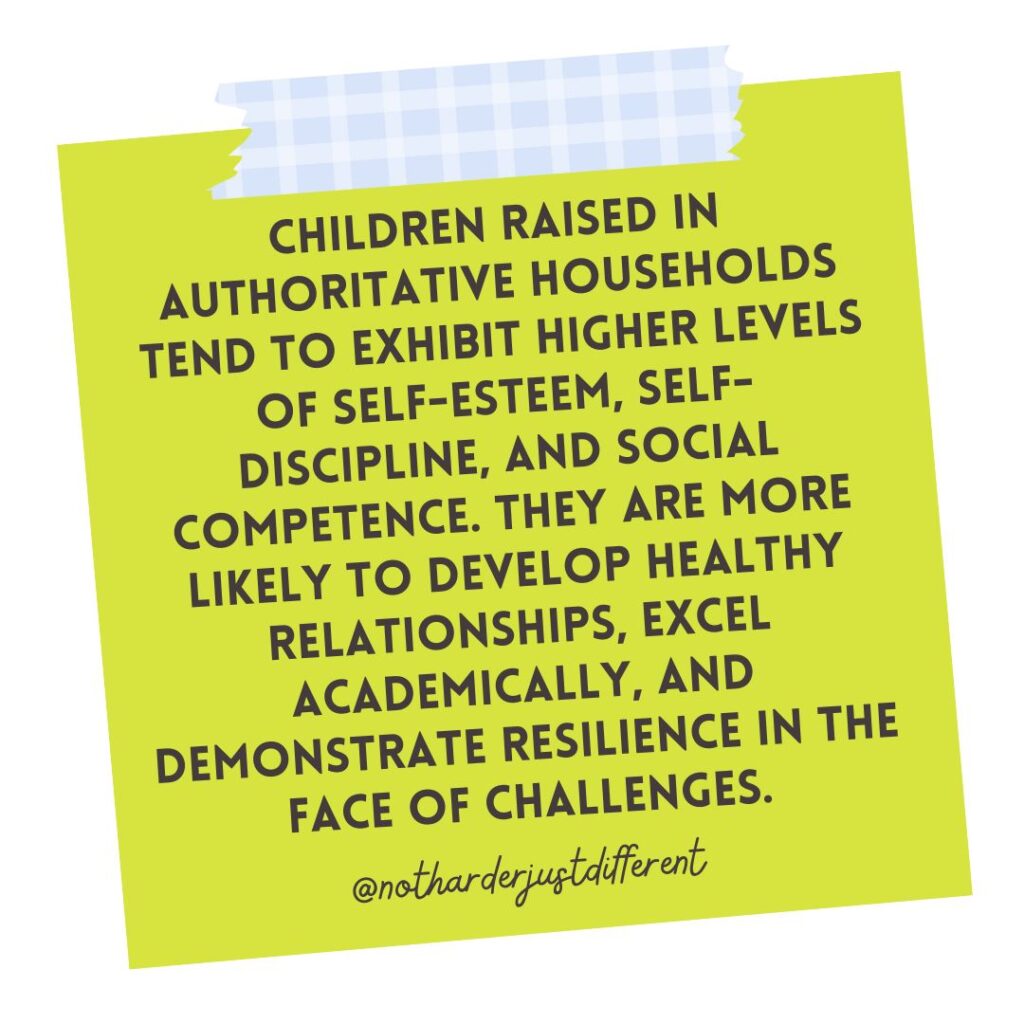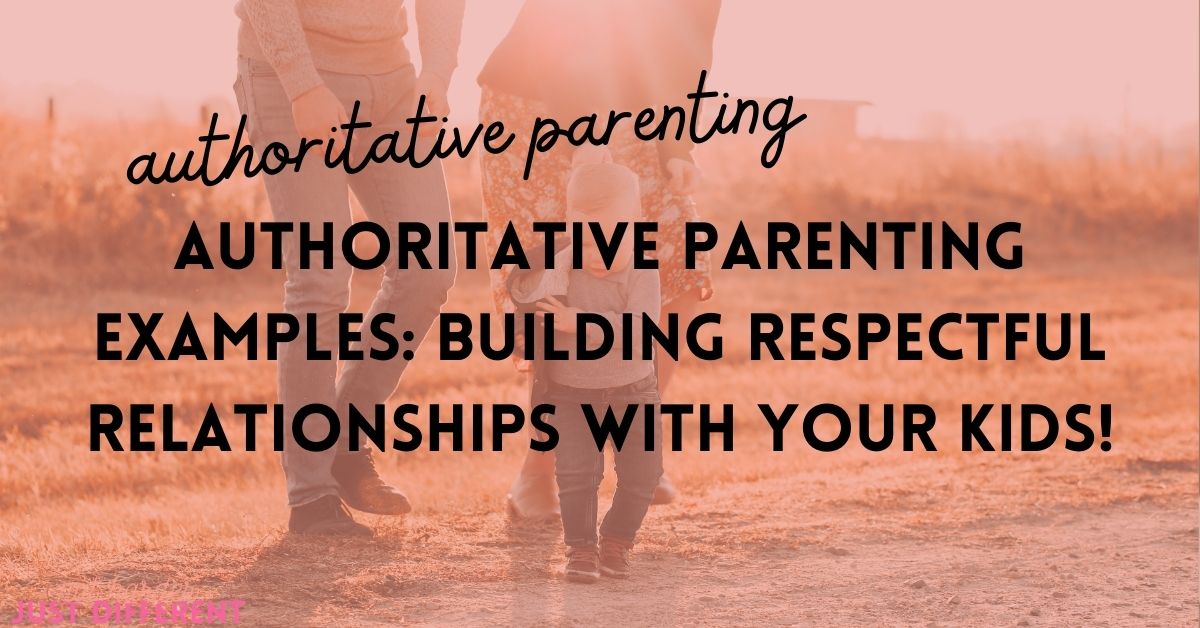Disclaimer: As a future Licensed Clinical Social Worker (LCSW) currently pursuing my master’s degree, I am passionate about sharing insights and information related to parenting, autism and homeschooling based on my personal experiences and research. However, the content shared on this blog is not intended to substitute professional advice, diagnosis, or treatment. Parenting is a deeply personal journey, and while I strive to provide valuable insights, every family and situation is unique. Readers are encouraged to consult with qualified professionals for personalized guidance tailored to their specific needs and circumstances.
Curious about authoritative parenting examples? Wondering what Authoritative Parenting actually looks like in real life? I’d love to share what it looks like in our family. Remember, no parent is perfect every time, every day. It’s just about doing little things over and over to make bigger results.
So, what exactly is authoritative parenting? Well, it’s like finding the perfect balance between warmth and structure in your parenting style. It’s about setting clear expectations and boundaries while also being responsive and supportive to your child’s needs and emotions. Think of it as being firm yet fair—a winning combination for raising happy and respectful kiddos!

Examples of Authoritative Parenting
Setting Clear Expectations
Bug wanted to use her tablet, but she hadn’t unloaded her section of the dishwasher. I reminded her gently about our rule to finish chores before she has her tablet. I explain why it’s important, you know, to balance fun and responsibilities. Bug sometimes understands and just does her chores, and sometimes it’s more of a fuss or fight, but setting clear expectations is a great foundation for helping our kids know what is coming and why.
Offering Choices
We’re all about options over here! Everything. Meals. Clothing. Order of things that need done. An example? Bug seemed a bit unsure about her breakfast options. Instead of picking for her, I offered her a choice between two options. It is amazing to see her confidently pick what she wanted. It’s all about empowering her to make her own decisions, you know?
Addressing Misbehavior Firmly Yet Calmly
I vividly remember a time at the grocery store, Bug threw a bit of a tantrum for a sugary treat. Instead of giving in or getting upset, I calmly explained why we should choose healthier snacks and that tantrums don’t get us what we want. I even gave her a couple of options of other snacks that we had at home and asked what she wanted when we got there.It’s all about teaching him to make good decisions, even when he’s upset.
Encouraging Open Communication
Bug and I often have heart-to-heart talks about whatever she is struggling with. I just listen to her feelings and offer support without judging. We are able to come up with some solutions together because our strong relationship allows her to open up and trust me with her worries. Building that open line of communication is everything!
Celebrating Achievements and Efforts
Whenever Bug does something that I know was really hard for her, I make sure to praise her for her hard work and effort. We celebrated together with high-fives and hugs. It’s all about boosting his confidence and letting him know his efforts are noticed and appreciated.
Commonly Asked Questions about Authoritative Parenting
What is authoritative parenting, and how does it differ from other parenting styles?
Authoritative parenting is a parenting style characterized by warmth, responsiveness, and clear expectations. Unlike authoritarian parenting, which tends to be strict and controlling, authoritative parents balance firmness with flexibility and encourage open communication with their children. This style differs from permissive parenting, which is more lenient and lacks clear boundaries.

What are the benefits of authoritative parenting for children?
Children raised in authoritative households tend to exhibit higher levels of self-esteem, self-discipline, and social competence. They are more likely to develop healthy relationships, excel academically, and demonstrate resilience in the face of challenges. Authoritative parenting fosters a positive parent-child relationship based on mutual respect and understanding, which lays the foundation for emotional well-being and success later in life.
How can I implement authoritative parenting in my own family?
Implementing authoritative parenting involves setting clear and consistent expectations for behavior while also being responsive to your child’s needs and emotions. It’s about establishing open lines of communication, providing reasons behind rules, and offering choices whenever possible. Strive to be warm and nurturing while also maintaining reasonable limits and boundaries that promote safety and respect.
What if my child challenges my authority or questions the rules I’ve set?
It’s natural for children to test boundaries and question rules as they grow and develop. Instead of reacting with anger or punishment, use these moments as opportunities for open dialogue and problem-solving. Listen to your child’s perspective, validate their feelings, and work together to find solutions that align with your family values and expectations.
Can authoritative parenting work for children of all ages and temperaments?
Absolutely! Authoritative parenting is a flexible approach that can be adapted to meet the needs of children at different developmental stages and with varying temperaments. Whether you have a spirited toddler or a sensitive teenager, the principles of authoritative parenting—warmth, responsiveness, and clear communication—can help foster a positive and supportive family environment where all children can thrive.
Authoritative parenting stands out as a powerful approach to nurturing confident, well-adjusted children while fostering strong parent-child relationships. By embodying warmth, responsiveness, and clear expectations, parents can create an environment where children feel supported, respected, and empowered to thrive. As we’ve explored the principles and benefits of authoritative parenting, remember that every family’s journey is unique, and it’s okay to seek guidance and support along the way.
If you have any questions about authoritative parenting or would like to share your own experiences, feel free to drop them in the comments below. We’d love to hear from you!

